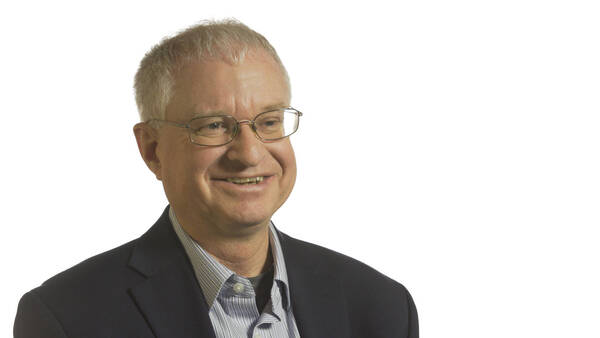
“Technologies answer to the values and purposes we already have, but they also give us different values and different purposes that we hadn’t conceived before. So we constantly need to be examining them.”
— Gerald McKenny
Gerald McKenny is Walter Professor of Theology. His research interests include moral theology, Christian ethics, and biomedical technologies. More information can be found at his faculty page.
Video Transcript
I study biomedical technologies that are not aimed at treating diseases but improving characteristics of our nature. These technologies would include things like drugs that make us concentrate better or alter our moods, in the future they may include genetic technologies that may change basic characteristics, interfaces between brains and computers.
The question that has always interested me and all of my work in bioethics is this question: how do we as human beings respond to our vulnerabilities and limitations? Medicine in general is an answer to that and these technologies offer a very particular set of questions and answers which have to do with whether we should accept our vulnerabilities and limitations as part of our humanity as created by God or should we instead strive to eliminate them?
I am interested in drugs that enable people to concentrate and some people who use these drugs use them because they have a disability and I think those uses are entirely justifiable. Other people use them to get an edge. They raise questions about whether we value sort of high-octane cognitive functions over other cognitive functions that might be more meaningful. I think for example of how much we value concentration over contemplation.
I am very interested in whether eventually we will have technology that will enable people to extend their lives in dramatic ways. Is life extension a substitute for immortality or is it some anticipation of immortality? These questions interest me both as an ethicist and as a theologian.
It’s important for people in the humanities to be involved in questions of biotechnology because there are ethical and humanistic assumptions that are being made throughout the process of conceiving of these technologies, developing them, marketing them, using them. Technologies both answer to the values and purposes we already have but they also give us different values and different purposes that we hadn’t conceived before. So we constantly need to be examining it.
The humanities provides a lot of rich material for understanding what truly does benefit human beings. Notre Dame is a place where people who do work in science and technology and people who do work in humanities and social sciences talk with each other. Being able to think about what makes human beings thrive and flourish from theological, a theological perspective and then engaging with people from other disciplines who are also answering the same question is extraordinarily fruitful and has been an ideal — is the reason Notre Dame has been an ideal place to pursue this work.
Originally published by at al.nd.edu on March 18, 2019.